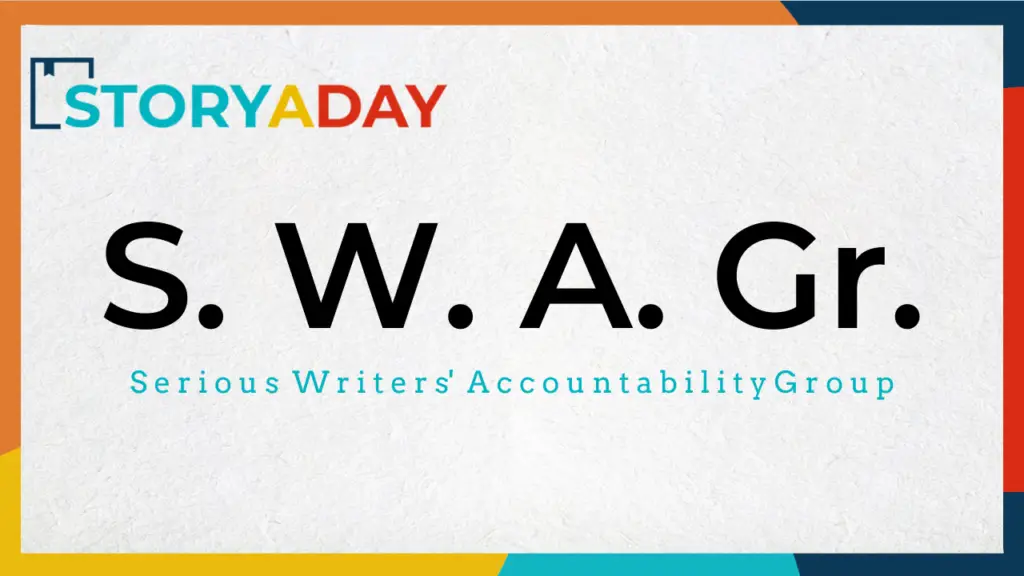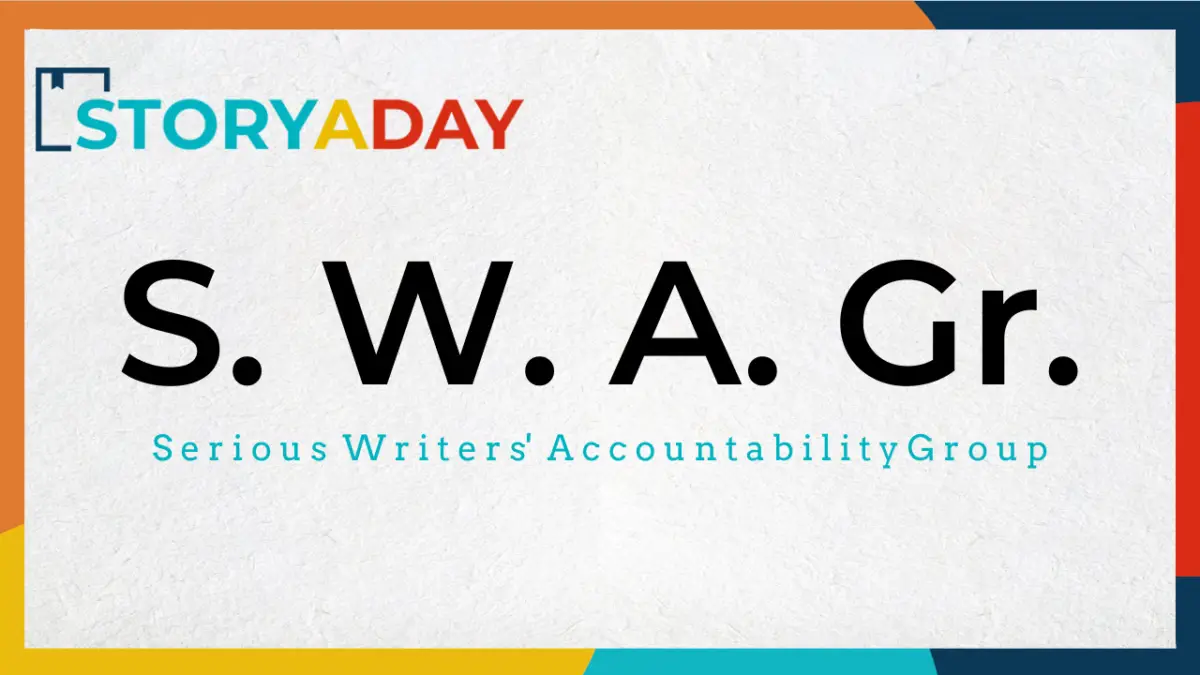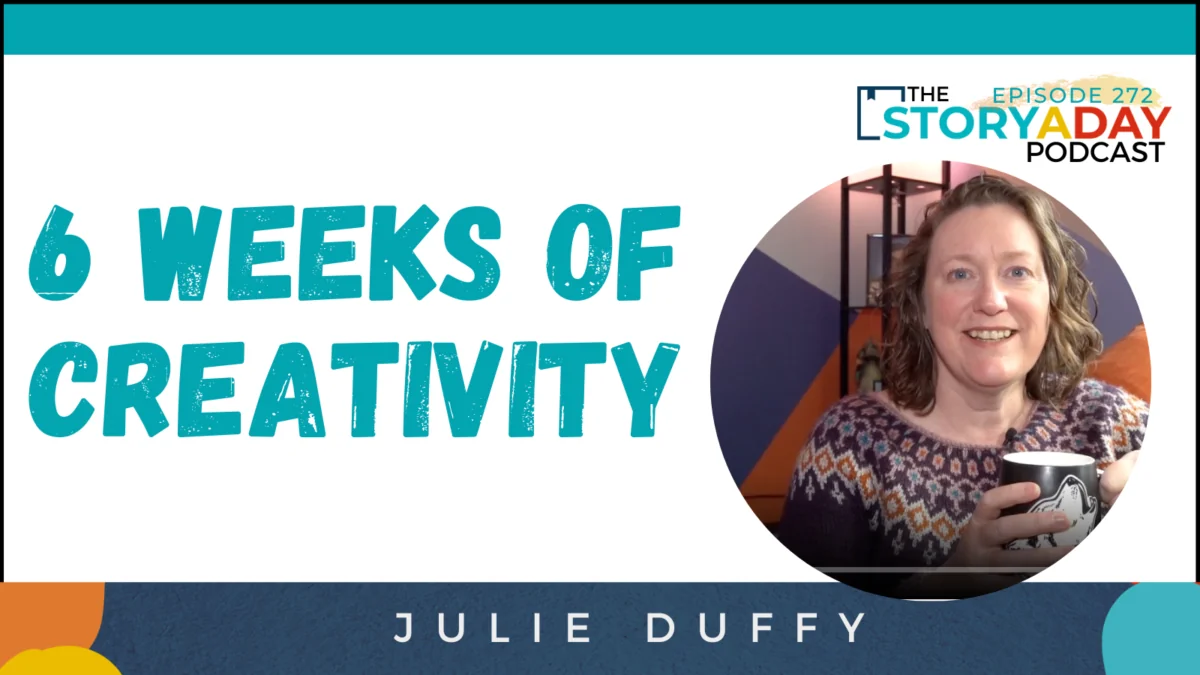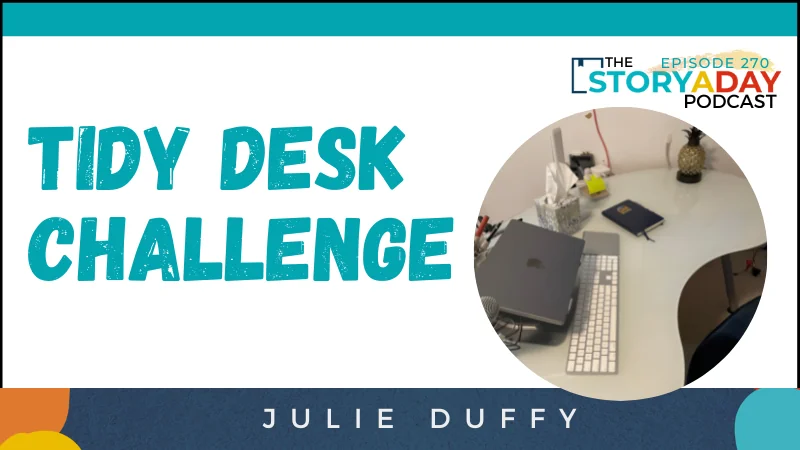Welcome to the Serious Writers’ Accountability Group!
Post your goals for this month and let us know how you got on with last month’s goals.

Leave a comment below telling us how you got on last month, and what you plan to do next month, then check back in on the first of each month, to see how everyone’s doing.
(It doesn’t have to be fiction. Feel free to use this group to push you in whatever creative direction you need.)
Did you live up to your commitment from last month? Don’t remember what you promised to do? Check out the comments from last month.
And don’t forget to celebrate with/encourage your fellow SWAGr-ers on their progress!
Download your SWAGr Tracking Sheet now, to keep track of your commitments this month
****
Examples of Goals Set By SWAGr-ers in previous months
- Finish first draft of story and write 3 articles for my school paper. – Courtney
- Write on seven days this month – Clare
- Extend my reading and to read with a ‘writers eye’- Wendy
- write 10,000 words – Mary Lou
So, what will you accomplish this month? Leave your comment below (use the drop-down option to subscribe to the comments and receive lovely, encouraging notifications from fellow StADa SWAGr-ers!)
(Next check-in, 1st of the month. Tell your friends!)







